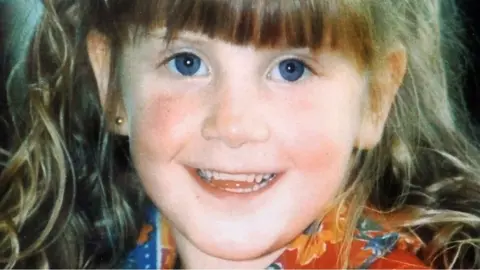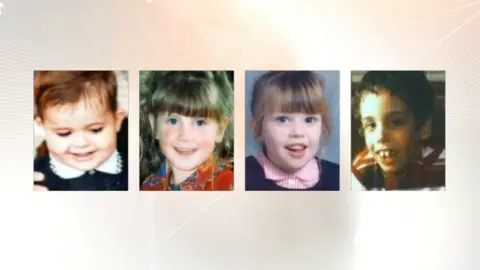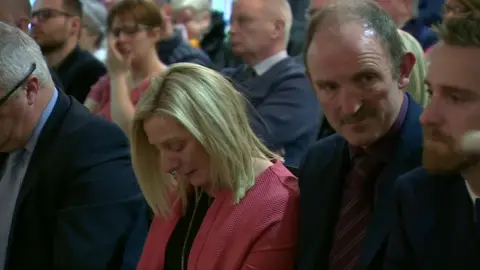Hyponatraemia deaths: Nursing decision under review
 PAcemaker
PAcemakerA regulatory body is reviewing its decision not to take further action against nurses involved in the care of a Londonderry girl who died of hyponatraemia.
The death of schoolgirl Raychel Ferguson was found to be avoidable.
The Nursing and Midwifery Council (NMC) originally told Raychel's mother Marie Ferguson that the failings had been addressed.
In 2018, it said no further action was required at that time.
The family then called on the council to reverse that decision.
The NMC has now confirmed to BBC Radio Foyle that it is aiming to conclude a review as quickly as possible.
Hyponatraemia is an abnormally low level of sodium in blood and can occur when fluids are given incorrectly.

Raychel was nine when she died at the Royal Belfast Hospital for Sick Children in June 2001, a day after an appendix operation at Altnagelvin Hospital in Derry.
Four other children - Adam Strain, Claire Roberts, Lucy Crawford and Conor Mitchell - all died at the Royal between 1995 and 2003.
The Hyponatraemia Inquiry found four out of the five deaths it investigated were preventable.
The damning report was heavily critical of the "self-regulating and unmonitored" health service.
'Treated so badly'
A NMC spokesperson said: "We were made aware of failings in care around hyponatraemia by nurses at the Western Health and Social Care Trust.
"We carefully examined those concerns and decided that we did not need to take any further action.
"After further communication with one of the families affected by the failings, we have decided to look again at our decision to ensure that it is sufficient to keep people safe."
The spokesperson said that the council recognises it is "a difficult time for the family".
"We will conclude this review as quickly as possible to limit the impact on them and those affected by the concerns."
Marie Ferguson told BBC Radio Foyle: "The hyponatraemia inquiry exposed the levels the health service in Northern Ireland went to to cover up the deaths of children.
"I don't hear any politicians calling on whistleblowers to come forward and to go public - we've had to do everything privately ourselves.
"We had a petition signed by thousands of people calling for the implementation of Raychel's Law and a duty of candour.
"Without political help and support it's going nowhere.
"My message to the politicians would be: How would they feel if it was their only daughter or son robbed from them and then to be lied to and treated so badly?"

Northern Ireland has been without a functioning executive since January 2017 and Mrs Ferguson said: "Politicians need to get back to Stormont to stop the likes of trusts governing themselves and to implement the many changes required."
She added that she is exhausted after "fighting for 17 years".
'Distress'
Des Doherty, the solicitor for the Ferguson family, said: "The NMC has now decided that they are going to reconsider their decision not to take any further action against the nurses involved in the treatment of Raychel Ferguson after submissions by the Ferguson family.
"Our clients have agreed with the NMC that those submissions and correspondence with the NMC shall remain confidential for the time being and that position will be honoured, pending a fresh decision by the NMC."
Mr Doherty said that the material that has now come to light "is also the subject of scrutiny by the Hyponatraemia Inquiry in order to determine potential relevance, if any, to the issues still under consideration by the inquiry with regards to the whistleblowing investigation".
In May 2018, the BBC revealed that 24 of the doctors criticised by the public inquiry had referred themselves to the General Medical Council (GMC).
In June 2018, the Department of Health established a number of work streams to implement the recommendations of the public inquiry, such as establishing a duty of candour and an independent medical examiner.
